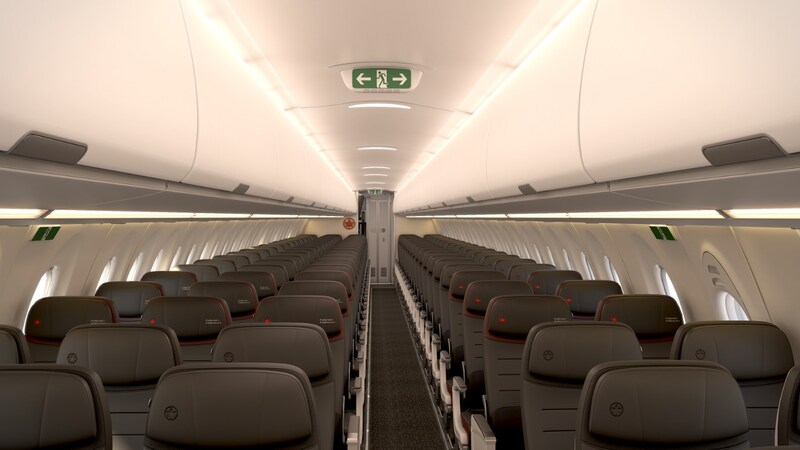The European Commission has opened an in-depth investigation to assess the proposed acquisition of Transat by Air Canada, under the EU Merger Regulation. The Commission is concerned that the proposed transaction may reduce competition in the passenger air transport services between the European Economic Area (EEA) and Canada.
Executive Vice-President Margrethe Vestager, responsible for competition policy, said: “Air Canada and Transat are the two leading airlines operating a wide network of routes between Europe and Canada. We will carefully assess whether the proposed transaction would negatively affect competition in these markets leading to higher prices, reduced quality or less choice for travellers flying over the Atlantic. This is a challenging time, especially in markets severely impacted by the coronavirus outbreak, but a return to normal and healthy market conditions must be based on markets that remain competitive.”
Air Canada and Transat are respectively the first and second-largest providers of scheduled passenger air transport services between the EEA and Canada. Together, their networks comprise 29 routes between Europe and Canada. Air Canada and Transat offer competing direct flights on these routes which are regularly used by passengers out of 10 EEA countries, namely Belgium, Croatia, France, Greece, Ireland, Italy, The Netherlands, Portugal, Spain, and the UK.
The Commission’s preliminary competition concerns
At this stage, the Commission is concerned that the proposed transaction could significantly reduce competition on 33 origin and destination (O&D) city pairs between the EEA and Canada. These include 29 O&Ds where both companies offer direct services and four where one company flies direct and the other one indirect via one of its hubs.
The Commission’s preliminary market investigation revealed that Air Canada and Transat have been historically competing head-to-head for the passenger air transport services between the EEA and Canada.
In particular, Air Canada, with its Air Canada Rouge brand, developed a business model to address the lower-cost and leisure-oriented nature of the EEA-Canada passenger air transport markets, thus directly competing with Transat. Other airlines, in particular the EEA national carriers, were found to be more distant competitors, only competing on a very small subset of routes out of their respective home hubs.
At this stage, the Commission found that even if the Canadian airline WestJet has expanded its transatlantic operations to the EEA countries, it is unlikely that WestJet would exert a sufficient competitive constraint on the merged entity with respect to the O&Ds that the Commission found problematic following its preliminary market investigation.
The proposed transaction was notified to the Commission at a point in time where the aviation sector is particularly impacted by the coronavirus outbreak. The Commission investigated the extent to which the coronavirus crisis would impact Air Canada, Transat and their competitors’ operations and hence the competitive landscape in the mid- and long-term. Mergers have long-term structural effects on competition, which need to be considered even in times of severe shocks affecting the economy.
The Commission was not in a position to determine whether in the long-run the companies would continue to compete on each and every route on which they used to compete before the crisis, based on the information available during the first phase investigation. However, the Commission takes the preliminary position that Air Canada and Transat remain the closest actual or potential competitors on the EEA-Canada routes in general and in particular on the relevant O&D city-pairs investigated by the Commission.
The Commission will now carry out an in-depth investigation into the effects of the proposed transaction to determine whether it is likely to significantly reduce effective competition. The proposed transaction was notified to the Commission on 15 April 2020. Air Canada and Transat have decided not to submit commitments during the initial investigation to address the Commission’s preliminary concerns. The Commission now has 90 working days, until 30 September 2020, to make a decision. The opening of an in-depth investigation does not prejudge the outcome of the investigation.
Companies and products
Air Canada, headquartered in Canada, is a global airline that provides scheduled passenger air transport services in Canada and internationally. Air Canada operates flights to Europe through its mainline fleet as well as through its subsidiary Air Canada Rouge, a lower-cost and leisure-focused service introduced in 2013. In addition to passenger air transport services, Air Canada also manages the Aeroplan loyalty program, provides air cargo service, ground handling services and offers vacation packages through Air Canada Vacations.
Transat, headquartered in Canada, is the parent company of Air Transat which provides scheduled passenger air transport services in Canada and internationally. Transat is also active as an international holiday travel company that develops and markets holiday travel services in Canada, the Americas and Europe.



